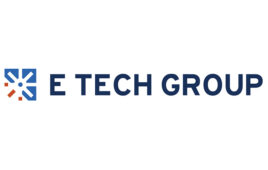It’s important to avoid missteps while protecting your medtech company’s innovations. Top Greenberg Traurig attorneys explain how.
David J. Dykeman and Bethany A. Stokes, Greenberg Traurig

(Image from Morning Brew on Unsplash)
When entering into partnerships and collaborations, a medtech company needs to have strong protection of its intellectual property (IP), which is often the company’s crown jewels. Non-disclosure, joint venture, licensing and collaboration agreements are integral to a medtech company’s growth, but not without risk.
Building collaborative relationships through the sharing of proprietary technology and confidential information can strengthen your position in the market. However, collaborative relationships may end unexpectedly, leaving parties in vulnerable positions unless their rights have been protected with carefully considered written agreements. In the worst case, the two parties wind up in court or arbitration fighting about the interpretation and intent of an agreement drafted many years earlier.
Successful collaborations involve complex negotiations related to issues such as maintaining confidential information, controlling research and development (R&D), ownership of intellectual property, timing of payments and profits, and ultimately, termination. Although each collaboration is unique, medtech companies should ensure that written agreements address the following five key aspects to help protect IP and prevent the loss of rights:
1. Confidentiality
Negotiating collaborations with third parties often requires disclosing confidential information to the other party, who may also work with your competitors. Prior to divulging any confidential information, parties should execute a written non-disclosure agreement (NDA) that prohibits sharing confidential information with any third parties or using confidential information for purposes other than its intended use. If a separate NDA is not entered into by the parties, it’s important to include comprehensive confidentiality provisions in the main agreement governing the collaboration.
2. Ownership of IP and improvements
Innovators must ensure that they maintain ownership of IP and all improvements to the product that may result from a collaboration. Collaborations often have ownership rights granted in proportion to the contribution made to the invention, but rights are sometimes divided by technology field or level of expertise. Any agreement governing a collaboration should include assignment of any improvements to the original innovator and grant a limited license to the collaborator only to the extent and time period necessary to complete the collaboration. It’s important to provide special consideration to pre-existing IP that each party brings into the collaboration, and draft the agreement to protect each party’s background IP. Any agreement should also address each party’s responsibilities regarding (1) filing of new patent applications and maintenance of patents and (2) litigation obligations related to patent infringement lawsuits and disputes.
3. Payments, milestones and royalties
Conflicts can arise when valuing the contribution of each party to a collaboration because it often determines the balance of power between the parties. Medtech agreements should clearly describe each party’s contributions, expected efforts and compensation. Upfront payments, milestone payments or running royalties can all be appropriate; negotiate them thoughtfully. Often one party provides funds to cover the initial R&D costs associated with the collaboration. Alternatively, it’s possible to use milestones payments to minimize the risk associated with upfront payments.
4. Assignment and change of control
While present at the end of most agreements, assignment clauses deserve careful review and attention. Medtech companies need to consider whether agreements should be automatically assigned upon a merger, acquisition or change of control, or if prior written consent for assignment is required. Automatic assignment of the agreement without consent may result in a party working with a competitor or other party they did not initially intend to.
5. Termination
No matter how successful, most collaborations will come to an end. Agreeing to the details of an orderly termination in writing before entering a collaboration is critical to avoid a messy dissolution. Termination clauses should address (1) when a party may terminate the collaboration; (2) who owns patents and other IP rights upon termination; and (3) the circumstances of termination. Parties will typically agree to termination in the event of a material breach of the agreement, insolvency, change of control, force majeure (be sure to include pandemics) or failure to timely supply product. Parties should also require adequate notice of termination and agree on what, if any, contractual obligations will survive termination, for example confidentiality, intellectual property and payment obligations. In particular, ownership and control of the designs, molds and manufacturing or regulatory documentation upon termination should be clearly addressed.
Protecting IP through thoughtfully drafted written agreements is key to building a successful medtech company. Prior to disclosing confidential information or addressing intellectual property rights, a medtech company should safeguard its interests with thoroughly negotiated written agreements that protect IP and support a successful collaboration.
This article reflects the opinions of the authors, and not of Greenberg Traurig or Medical Design & Outsourcing. The article is presented for informational purposes only and it is not intended to be construed or used as general legal advice nor as a solicitation of any type.
David J. Dykeman, is a registered patent attorney with more than 23 years of experience in patent and intellectual property law, and co-chair of Greenberg Traurig’s global Life Sciences & Medical Technology Group. Dykeman’s practice focuses on securing worldwide intellectual property protection and related business strategy for high-tech clients, with particular experience in medical devices, wearables, robotics, life sciences and information technology. He can be reached at dykemand@gtlaw.com or at (617) 310-6009.
Bethany A. Stokes is of counsel at Greenberg Traurig in Boston. She advises clients on procurement and enforcement of IP rights, including domestic and international trademarks. Stokes also focuses on technology licensing, including negotiating and drafting of licensing, joint venture, collaboration and other IP-related agreements. She can be reached at stokesb@gtlaw.com or (617) 310-6098.




